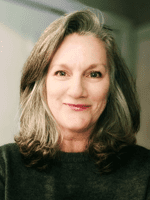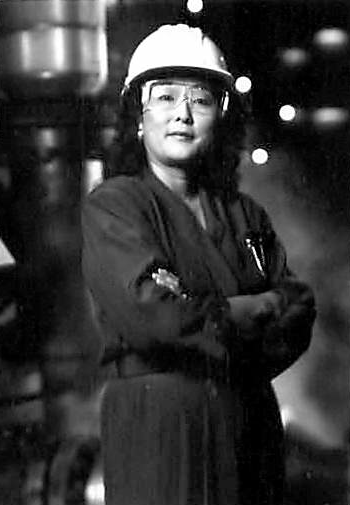
Forty years in a male-dominated, cyclical and volatile industry is quite an accomplishment for a female entrepreneur and, last year, Donna Fujimoto Cole, founder and CEO of Cole Chemical, reached that milestone. It was an occasion that should have been marked by celebration but, instead, she found herself in the midst of the COVID-19 pandemic, dealing with a serious family health crisis and narrowly avoiding being swindled out of $160,000. Any one of those things could have dealt a severe financial blow to the company she has built into a successful enterprise over the past four decades – not exactly the celebration she had in mind.
To her credit, she found the same inner strength that enabled her to start the business as a 27-year-old divorced, single mother to her four-year-old daughter, Tami, to keep the company afloat and even diversify into new areas of business when many others were unable to survive the crisis. The same mentor, who believed in her and helped her have the confidence to found Cole Chemical in 1980, and later became her “significant other,” is still by her side, having survived a near fatal health crisis last year.
“We all need good mentors, somebody who knows us, who says, ‘You can do it. Here are all the reasons why I think you can [succeed],’ and ‘Here’s what I have seen in you and your work.’ I was very fortunate to have somebody like that. Bob Berryman is now my significant other and we’ve been together for 35 years,” Cole says with a smile in her voice. Berryman has helped many entrepreneurs over the years and has had more successes than costly disappointments.
It took some convincing on Berryman’s part where Cole was concerned. Prior to deciding to go out on her own, she had already been working in the chemical industry and had encountered not only sexism, but racism early on when a Japanese company refused to put her name on the stock distribution page – despite the fact that Cole is of Japanese heritage! “I could have sued,” she says, “but I took the high road.”
It also led her to the epiphany that if she continued to work for someone else, she was limiting herself. She realized that by starting her own business she had the potential to make a lot more money. “Part of that was just being a mom and wanting to put a roof over my daughter’s head. I had a lot of reasons why I needed to succeed.”
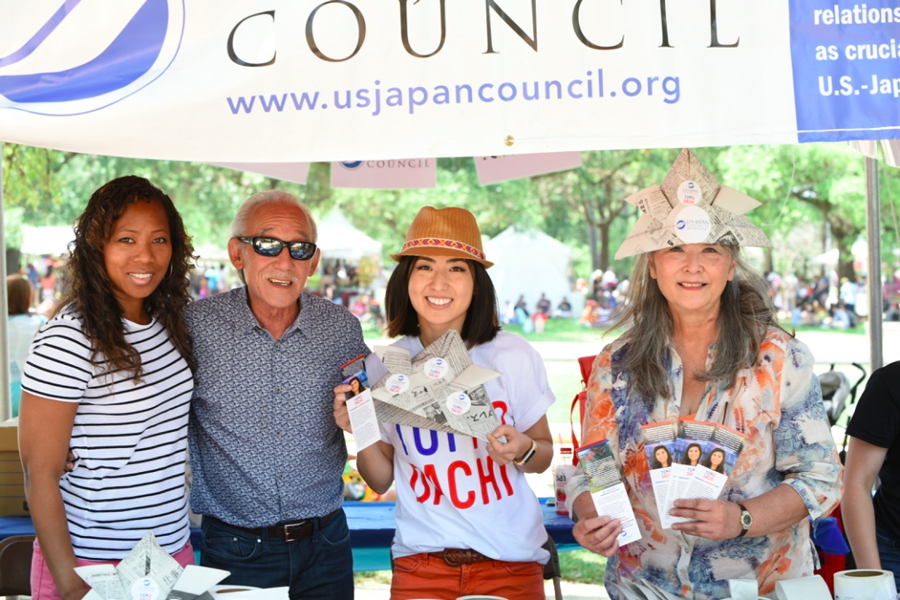
Cole had the will, but she had to make a way in an industry that was not particularly welcoming to women and certainly not to a woman who was a member of a minority group during a time when there was still anti-Japanese sentiment in the United States.
Despite the fact that in 1974 the U.S. Senate passed the Equal Credit Opportunity Act, which “prohibits discrimination on the basis of race, color, religion, national origin, sex, marital status or age in credit transactions,” unmarried women – whether single, divorced or widowed – often were required to have a man cosign in order for them to obtain a credit card.
“Nobody wanted to give a divorced woman a credit card,” Cole states flatly. She took on some working partners to help increase her cash flow, in order to purchase raw materials and build inventory, a decision Berryman disagreed with. She eventually borrowed the money from him to buy out her partners and they agreed on a business arrangement whereby he would buy the product and then resell it to her, so that she could pay back the debt she owed him.
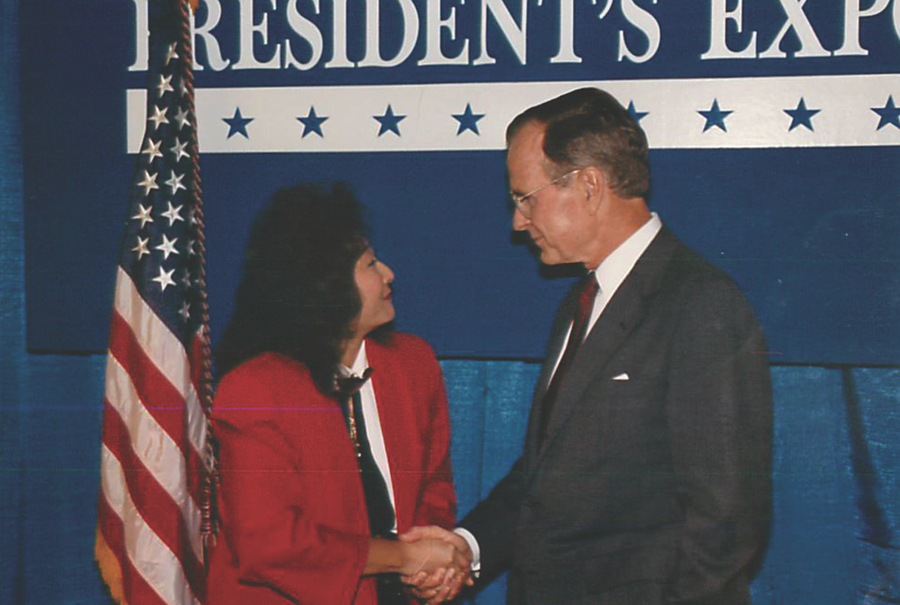
“When you’re starting a business, you have to think about financing and how you’re going to be able to pay for product. Not being able to get credit can be a deal killer.”
Fortunately, her “angel investor” was by her side and some of the major oil and gas companies – Exxon (now ExxonMobil), DuPont, Shell – that had urged her to go out on her own stayed loyal to her. In time, however, during one of the downturns, she noticed company revenues had dropped considerably from a high of over $90 million in sales. When she began inquiring, those longtime customers told her that instead of supporting local or regional suppliers, they were now accepting international bids. Indignant, Cole pointed out that she had not been asked to bid and was told that she did not have enough of a global reach.
“As a business owner, I love challenges and finding ways to overcome them, but that was one great challenge that I could not overcome even though I had already been in the industry for 20 years. It was a big blow. Part of it also is taking a look inside at what’s going on with the company, what are the trends and what are the challenges facing us going forward? I could always look at the future and say, ‘Where do we need to be? What do we need to do to survive?’” but Cole admits the pandemic, this year’s devastating winter storm and its aftermath, and the looming hurricane season present formidable challenges to business owners.
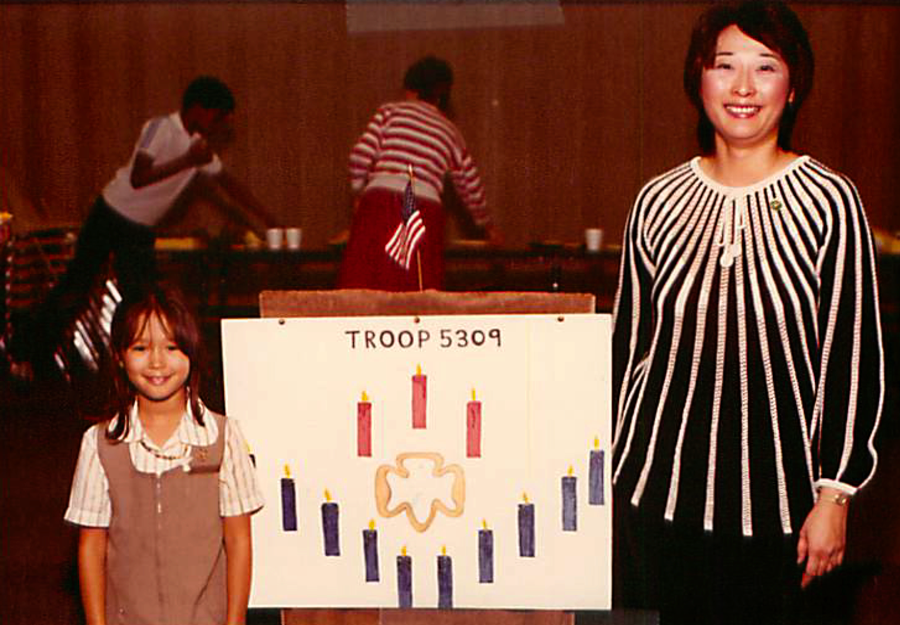
“It will be interesting to see how things play out in the future, especially for the oil and gas, refining and petrochemical industries because so many people are against us, but what they don’t know is, they can’t live without us,” Cole says, pointing out that electric vehicles (EVs) are made using petrochemicals. Citing the February snowstorm and power outage as an example, she asks, “What are we going to do when the batteries are dead?” As someone who lives in Houston, she thinks of another natural disaster fairly common to the Gulf Coast. “What if there was a hurricane, and the electricity was out and everybody had electric cars? You’re trying to get on the road [during an evacuation] and they’re stalled because there is no way to charge them.”
The snowstorm that descended on Texas and other parts of the southern U.S. as the country surpassed the one-year mark of the COVID-19 crisis served as a stark reminder “of how much the chemical industry is integrated into our everyday lives whether it’s soap or detergent or cleaners,” Cole says. “All of those surfactants are made from petrochemicals.” She notes that many products – from automotive moldings made from resin to engine coolant – were in short supply as the swiftness and severity of the storm did not give the refineries and chemical plants time to shut down slowly in stages, like they would do in the event of a hurricane, and suppliers, like Cole Chemical, didn’t want to gamble bringing in inventory from overseas.
“We also sell to the electric utility industry. During the freeze, they couldn’t get product to run the electrical plants, which is something people don’t think about. Even if they were able to get electricity off the grid, the plants can’t run without chemicals. You need fire resistant hydraulic fluids; you need water treatment chemicals because of the power generation in your boilers. People asked why they had to boil water. There were no chemicals to keep the water clean.”
As a leader, Cole notes how important it is to keep customers calm and reassured that they will have the products they require in a crisis situation. “Companies need to find a good supplier who’s going to protect them and locate and deliver the product whether it’s under a transparency basis or not. We have a clause in our contract that, even if our producers go on force majeure, we’re able to go off the contract price to globally source product for our customers that meets their specs to keep them from shutting down.” While high demand for a product might sound desirable, Cole points out that is not the case during a severe shortage.
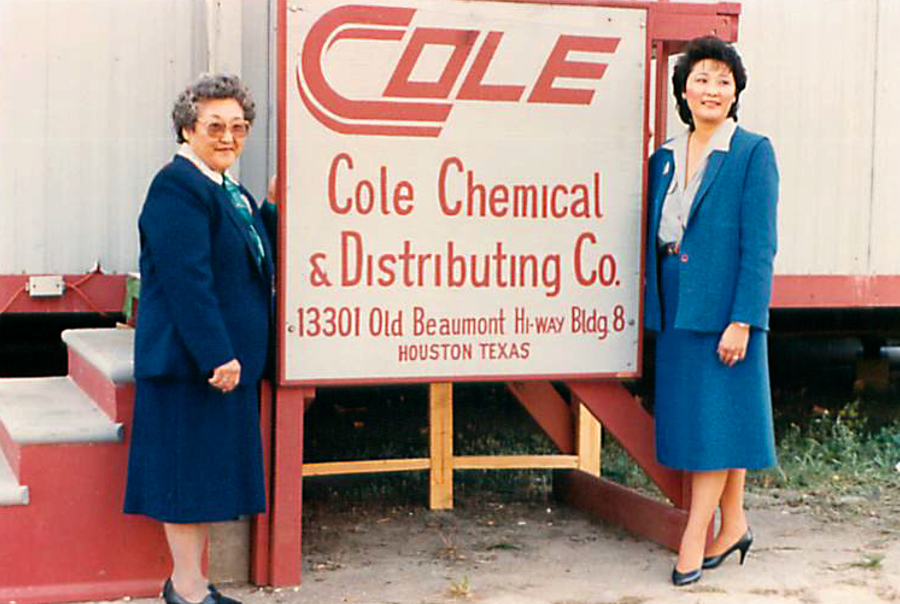
multi-million-dollar business.
During the ongoing COVID-19 crisis, Cole Chemical repurposed its alcohols and glycerin to make hand sanitizer which, for a time, was almost impossible to find as demand skyrocketed and people began panic buying. Trying to help other small businesses pivot and do what they could to stay afloat opened the door for the company to supply masks, gloves and other supplies “to survive this whole COVID situation.” In the process, the company was almost swindled out of $160,000. “At the last minute, the VP of operations, Jodi Phillips, got this gut feeling and did a little more investigation and, sure enough, it was a scam,” says Cole, who contacted the FBI.
The pandemic reinforced the fact that reinvention is critical in the rapidly changing world in which we live and, most recently, the company has embarked on research, marketing and sales of products from a proprietary carbon capture of CO2 emissions process. “It’s exciting to help companies meet their environmental and sustainability goals,” Cole says.
She has seen a lot during her 40 years as an entrepreneur, although 2020 certainly presented unique challenges. Unfortunately, she hasn’t seen much of an increase in the number of women CEOs, who she believes bring “more caring and compassion” to corporate culture. “We try to treat people as human beings in terms of what they need to relax and just do their job.”
Cole admits that “prior to COVID, I was against working from home (WFH) but now I realize it can be done and there’s so much more savings in fuel, carbon footprint [and even our] work wardrobes, so there are some financial benefits.” Cole also thinks it could be mentally beneficial to some employees – and confesses she has had to relax some of her rigid standards, such as answering the phone within four rings and not putting customers on hold for longer than 30 seconds – but she also misses seeing her employees face-to-face and having the opportunity to address things as they happen instead of after the fact.
She has also been known to work late and send emails after hours, although she read somewhere that it sets a bad precedent, as employees will feel like they have to do the same thing. Despite striving for excellence, Cole says, “Oh, gosh, please, I don’t expect that!”
She does have high expectations of herself and wants to pass along the wisdom and knowledge that come with four decades of running a successful business as a woman and a member of a racial minority group in a white, male-dominated industry. As a busy CEO, who is also a wife and a mother, it is hard to find time to do that in the form of individual mentoring, but the woman who “loves challenges and finding ways to overcome them,” found a solution in 2013 when she joined forces with several other women and formed the media production company, Pantheon of Women (POW).
In 2015, the company produced the movie, I Dream Too Much, starring veteran actress Diane Ladd. Four years later, the world premiere of its stage production, Breaking Out of Sunset Place, was held in Houston. While each received critical acclaim, its 2020 musical, Lady of Agreda, was forced to drop the final curtain after five performances due to COVID. Most recently, POW released the 2020 coming-of-age film, The Never List (hint: it is the opposite of a bucket list), featuring Asian actors in the lead roles. (Fun fact: Cole’s own “never list” includes scuba diving and skydiving, bungee jumping, riding a zip line – “basically anything where I have to sign a liability waiver if I get injured or die! I have a huge sense of responsibility to the company and my employees and I’m not that kind of thrill seeker [anyway]. Every day in the chemical industry is thrilling enough for me.”)
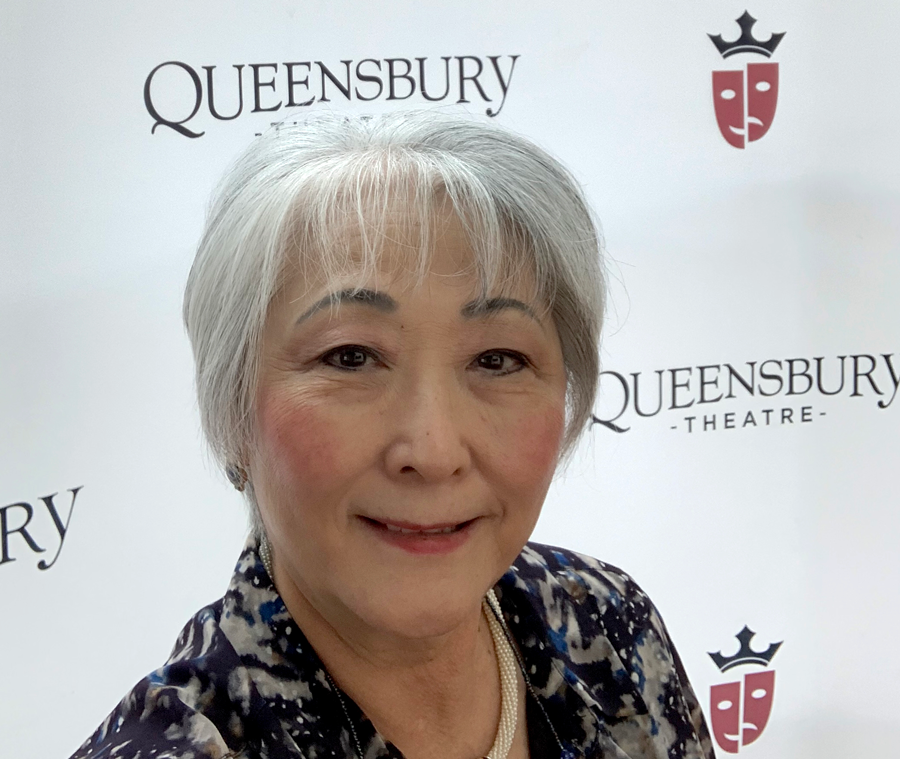
the media company, Pantheon of Women.
Not only does making movies provide Cole with an avenue to “mentor millions of women instead of just a few,” it enables her to combat negative stereotypes. “I think, if we can tell a great story about strong women and supportive men, we can empower and inspire them to make positive change in their lives and communities.”
The ability to impact lives is something that weighs on Cole who, despite being a successful entrepreneur at the helm of a multi-million-dollar business, is not immune to the racial tension and social unrest currently plaguing the U.S., nor does her position spare her from prejudice and discrimination. Cole recalls a recent incident in the grocery store where a child sitting in a shopping cart pulled on his eyes to make them slanted every time she looked his way, his father seemingly oblivious. “It took me back to elementary school when I was being tormented and bullied.” She didn’t say anything to the child’s parent but, in hindsight, believes she should have.
In a more covert example, Cole recalls talking to a radio show host about her 2020 musical, Lady of Agreda, and later mentioning the Texas Lost Battalion and the American soldiers of Japanese ancestry who rescued them. “There was dead silence. He was really interested until he found out I was Japanese American. I thought, ‘Oh my gosh, it still exists,’” says Cole, who remembers her parents not being able to speak Japanese for fear of being taken to an internment camp; consequently, she does not speak Japanese. “But now I have to be more proactive in my response instead of just ignoring it.”
According to Juunishi, the Asian zodiac, Cole was born in the year of the tatsu (dragon). As she explained in a 2012 interview with the Chao Center for Asian Studies at Rice University, it was also the Year of the Dragon, making her 60th birthday that year especially significant, as she had gone through each life cycle – wood, fire, earth, metal and water – five times, representing the start of a new life. As she approaches her milestone birthday next year, infusing new life into Cole Chemical is on her mind.
After considering a list of potential successors that reads like a United Nations’ of candidates – a Hispanic man, two Hispanic women, an Indian man and a Filipino man – Cole has fixed her gaze on Jodi Phillips, one of her early employees, who worked with her before going to college and entering another field. In 2019, Phillips rejoined the company as its VP of operations (and head scam detector).
“Jodi’s really smart; actually, she’s much smarter than I am,” Cole says self-deprecatingly. “We complement each other. I’m more of a visionary and a people person, and she’s very analytical and detailed so, between the two of us, we’re able to balance out into a whole person,” Cole says laughing.
“Down the road, I look forward to hopefully selling her 49 percent of the business with my share being 51 percent. I’ll let her lead the company while I sit back as chairman of the board and make the financial decisions, the big decisions.” With Berryman, now fully recovered, by her side, it will be the start of a new life.
Rebecca Ponton is the editor in chief at U.S. Energy Media and author of Breaking the Gas Ceiling: Women in the Offshore Oil and Gas Industry. She is the publisher of Books & Recovery digital magazine.


